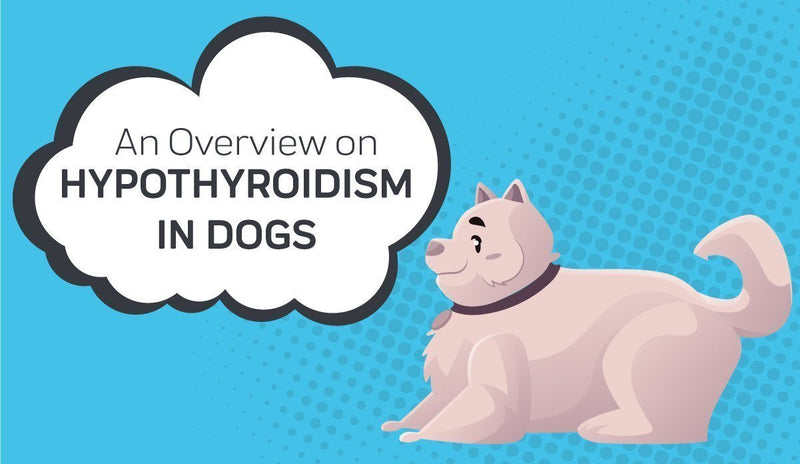
While reading the term “Hepatitis,” the initial thought that rises to mind is probably the infectious human disease. But, it’s vital that you know that Hepatitis A in human beings is different from hepatitis in dogs.
With this knowledge, the disease isn’t any less frightening and ought to be taken seriously in all instances. This post will offer an overview of dog hepatitis, typical symptoms, as well as methods of treatment.
Hepatitis A in Dogs: What is it?
Canine hepatitis is an infectious virus that’s a result of Adenovirus Type 1. The Adenovirus in canines may create infections inside a dog’s upper respiratory tract (but more on that later). More commonly, the virus targets the functioning parts of the dog’s organs like his eyes, kidneys, and liver. In the majority of instances, the virus first will present itself by way of dog congestion or fever.
Before going any further let’s discuss respiratory infections in canines.
All pet owners adore their dogs. They are like their children, or even best friends and work companions. Therefore, it isn’t any wonder pet parents feel sad when their dog is ill.
Occasionally getting ill or sick just means a dog is sleepy and tired for a couple of days. Other times, it might be severe enough to warrant a visit to the animal hospital or vet.
One reason the flu or cold might turn to a hospital trip is when the illness spreads to a canine respiratory infection. If it does, you will want to instantly take the dog in to see a vet to avoid any more complications.
Respiratory Infection in Canines: What is it?
Although respiratory infections may have various effects and causes, the simplistic definition is a viral, fungal, or bacterial dog infection affecting the lower or upper respiratory tracts. Usually, a lower respiratory infection is going to be referred to as dog pneumonia, yet not always.
The areas that are affected in a respiratory infection might involve:
- Lungs and surrounding airways
- Bronchi
- Trachea (also referred to as the windpipe)
- Larynx
- Sinuses
- Throat
Almost all dog respiratory infections are caused by viruses or bacteria, yet some pups might be at a greater risk for fungal infections depending upon where you live.
Most pups are not at great risk of respiratory infections even if they become ill with the flu or cold (canine influenza). The pups at the greatest risk for pneumonia, or an additional respiratory infection, are those who have chronic conditions (particularly respiratory conditions) or have weakened immune systems because of being very young, very old, or additional causes.
Therefore, what precisely causes dog respiratory infection? This guide is going to explain further in detail below.
Respiratory Infection in Canines: What Causes it?
There are tons of different viruses, fungi, and bacteria that may worsen or cause a respiratory infection in canines. However, there also are some which are much more likely and common.
Here, we present a list so you may keep informed in case you see a few respiratory infection symptoms in your dog.
Typical causes involve:
Canine distemper
This is a very serious condition that may cause a lot more than simply respiratory infections. It also can affect neurological and gastrointestinal systems. But typically, it’ll cause serious respiratory infections, like pneumonia. One typical distemper symptom is a mucous-like discharge of the eyes and nose. The majority of dogs are not at risk for canine distemper, yet the ones who have not been vaccinated for the disease (like puppies) or dogs that have weakened immune systems might be at risk.
Canine influenza
This is also referred to as the dog flu. Canine influenza is a very contagious viral infection that’s a major contributor to dog respiratory disease. Because influenza is very contagious, dogs that interact with a lot of dogs routinely are at the greatest risk for infection. If you believe your pup might be ill, keep him at the house for a couple of days. Secondary infections are typical with influenza, therefore, be certain that you keep a close eye on your pet if they exhibit any symptoms or signs. If your pup still is healthy, it might be smart to get your pup the vaccination for canine influenza.
Adenovirus type 2
This kind of virus is a lot less contagious than influenza because it’s transmitted by respiratory secretions. But the virus may cause several problems like a canine respiratory complex. One intriguing fact is that adenovirus type 2 is associated with canine hepatitis.
Bordetella bronchiseptica
If you are familiar with any of the types of infections listed, it probably will be bordetella. You might’ve heard it called ‘kennel cough’. It’s a very common respiratory infection, particularly for canines who are consistently boarded at kennels (hence the reference kennel cough). The majority of pups get the canine bordetella vaccine; however, for those who already are infected, they’ll suffer discomfort and inflammation in their bronchi and windpipe.
Now let’s continue with the original subject.
Usually, hepatitis A in dogs will start in the mouth, nose, and tonsils, working its way inside the bloodstream to target the dog’s white blood cells. At that point, it’ll start spreading and replicating throughout additional critical organs inside the dog’s body. As the virus has spread, it’ll leave the body through the canine’s excretions. Additional dogs then may come into contact with the virus via the feces or saliva of the infected pup which will just continue the cycle. During this point, the virus is contagious to additional animals, yet never to human beings.
The virus can spread rapidly and is contagious. Though the virus may be found worldwide, it’s a lot less common in regions in which vaccinations are encouraged. Depending upon how healthy the canine is, these Hepatitis A cases may range from being mild to serious, with some instances becoming deadly. Unvaccinated canines and puppies are most at risk for obtaining Hepatitis A and therefore will probably develop the most severe illness symptoms.
For those reasons, it’s very important to be informed about the symptoms and signs of Hepatitis A to keep your pup as healthy as he can be.
Hepatitis A in Dog Symptoms
There’s a host of canine hepatitis symptoms. A canine might begin with extremely mild dog hepatitis symptoms which progressively will worsen into more severe ones. Seeing any of the following indications will be critical in ensuring your dog’s health. If you observe one or more of the following signs below, it’s highly recommended to take your pup to the vet ASAP.
Below are the most typical Hepatitis A symptoms in dogs:
- Seizures
- Fast weight loss
- Swelling
- Bruising or bleeding
- Jaundice
- Vomiting
- Excessive urination
- Bloating
- Runny nose
- Coughing
- Congestion
- Lethargy
- Loss of appetite
- Fever
While every one of those symptoms on their own might not necessarily be connected with Hepatitis A, several symptoms that present themselves at once typically points to a severe underlying health problem. But this is pretty challenging to determine unless the dog owner has expert medical training. For that reason, it’s suggested to pay attention to the dog’s behavior. If something seems totally off, take your pup to the vet immediately. The disease will work its way through your pup’s system fairly quickly. If your pup does indeed have Hepatitis A, he’ll require immediate medical treatment.
How to Prevent Hepatitis A in Dogs

DHPP is extremely common among vet recommendations and actually is considered to be one of the main vaccines suggested for all dogs. Such vaccines are made to protect a pup against many various types of illnesses. The vaccine assists in building up the immune system of the dog and, hopefully, keep him from contracting a worse type of the disease later in life. Here’s the good news: a vaccine is out there on infectious canine hepatitis. This vaccine is referred to within the medical world of animals as DHPP for dogs. The acronym is short for Distemper, Adenovirus (H is for Hepatitis A since it’s a result of contracting Adenovirus), and Parainfluenza, as well as canine Parvovirus.
Typically, the DHPP vaccine is administered from an early age. The DHPP vaccine schedule starts in the puppy’s initial 6 to 8 weeks of life and continues on during the weeks of 10 to 12, 14 to 16, a year later, and lastly every 3 years following the final virus administration.
Vaccines are an extremely personal choice that should be made between the dog owner and the vet. If the dog owner opts not to vaccinate his puppy, the dog is at a greater risk of contracting the disease, which potentially can lead to deadly consequences. In addition, not maintaining the suggested vaccination routine also can place your dog at risk for contracting this virus.
Hepatitis A Diagnosis
While it is essential to highlight the severity of this, diagnosing Hepatitis A in dogs doesn’t necessarily equate to death. A dog diagnosed with Hepatitis A has a chance at overcoming the virus so long as he gets immediate medical treatment.
The vet will begin the session by discussing the dog’s current and past health history. It’s the best time to educate your veterinarian on the symptoms your pup is displaying and any unusual behavior they might be exhibiting. If the dog owner has data about the pup’s genes, which includes parental health background, it’ll also help the veterinarian form the right diagnosis.
It’s common that a complete medical exam will be performed on the dog. There’ll probably be a series of blood work and tests performed to determine if the dog does indeed have the disease. Various techniques are available to test for the existence of the virus.
Usually, blood tests are one of the initial tests to be performed when a pup is displaying a number of symptoms. The bloodwork will permit the vet to be on the lookout for impaired kidney function. If the blood work that comes back shows proof of a decreased quantity of white blood cells and shows that the dog has liver disease, these are all good signs that he has been infected. Oftentimes, an ultrasound and/or x-ray will be performed to visually assess the liver. Within some instances, the vet also may take a sample of the tissue in the liver to be biopsied in a lab. Urine samples or radiographs also may be ordered, yet these vary from one clinic to another.
It’s vital to note that the virus may happen in any breed of dog, at any age, and any sex. On average, Hepatitis A occurs more in middle-aged to senior dogs.
Within some instances, there are certain dog breeds like Labrador Retrievers, German Pinschers, Cocker Spaniels, and Terriers which are predisposed to developing a more chronic hepatitis version. Those particular dog breeds usually have an accumulation of copper inside their liver cells, making them more susceptible to copper-storage disease. The male dogs within those breeds are at a greater risk of contracting the disease. These breed owners may discuss possible risks with their vet.
My Pup has Hepatitis A, Now What?
Once all the proper tests have been done, the vet will meet with the dog owner to go over the results.
Although there aren’t any specific methods of treatment, some dogs may heal from the mild virus forms on their own. Vets usually will prescribe a treatment routine that’s concentrated on managing the symptoms related to the virus as it runs its course all through the dog’s body. Antibiotics are sometimes prescribed that don’t treat the virus, just ward off secondary dog bacterial infections.
While in recovery, allow your pup to relax in a comfy space inside your house. Separate an area of your house which will limit the mobility of your pup while still keeping them at ease. Some veterinary professionals will suggest heated blankets or heated fan aid in reducing the pet’s symptoms.
If he experiences clouding around the corneas, the vet might prescribe an eye ointment which will relieve a bit of the discomfort related to this symptom. In those instances, it also is advised to keep your pet out of direct sunlight or additional bright lights.
The vet might have sent the dog home with certain medication which will have to be given to the dog. The purpose of those meds includes regulating the more dangerous and uncomfortable symptoms like vomiting or pain.
Medication may involve common anti-inflammatory or antibiotic agents which will aid in eliminating the fluids which have built up inside the abdomen. Additional pills are made to assist in preventing gastric ulcers and diuretics are administered to promote fluid loss. Ideally, all medications recommended will assist in treating infection, decreasing brain swelling, and helping to control potential seizures.
If the case is serious, the vet might suggest that the dog remain overnight, or for several nights underneath supervised clinical care. While hospitalized, the dog might be offered IV fluids. These fluids might include potassium, B vitamins, and dextrose to aid with dehydration. The overnight choice is very useful for dog owners who have a strenuous work routine and might not have the ability to offer the full-time care their dog requires. At a pet hospital, there’s the probability that a blood transfusion might be suggested, especially in late Hepatitis A-stages.
Depending upon whether the dog will be recovering at home or in the hospital, it’s highly likely that their diet is going to also be changed. The vet might suggest limiting the quantity of sodium, adding in more vitamins, and taking on a low-protein diet. The animal’s appetite may weaken over the span of the virus; therefore, instead of consuming two meals a day, he’ll have to be encouraged to consume small quantities of food every one or two hours to ensure correct nutrition. It also is possible that an IV tube will be required if the pup refuses to eat. Consult your vet for advice or canine nutrition checklist.
As the virus continuously makes its way through the dog’s body, follow-up trips to the vet’s office will be strongly advised. It’s just to observe the progression of the disease. Even canines who’ve recovered from the virus will continually shed the disease inside their urine for a minimum of 6 months.
It’s vital to know that there’s a possibility of long-range kidney damage to the dog, too The aforementioned clouding that surrounds the cornea of the pup’s eye also is a long-range symptom, typically called blue eye, which is the result of the disease attacking the dog’s immune system.
Just keep in mind, all this may be prevented if the pup is vaccinated. If your dog hasn’t been vaccinated, it is important that you have the ability to spot all of the symptoms, as well as signs as soon as possible. Once you have the ability to do so, you will be able to provide your dog with the treatments for canine hepatitis he requires as fast as possible.
For more information feel free to get in touch with Innovet Pet Products right away!
Sources:
Infectious Canine Hepatitis
Chronic hepatitis
Chronic hepatitis in Dogs
Hepatitis A Virus Cellular Receptor
Canine Infectious Canine Hepatitis
Approved by:
Dr. Sara Ochoa
Doctor of Veterinary Medicine, St. Georges University

Thanks for stopping by!
P.S. We Love You!
Sincerely,
The Innovet Team
Please do not ask for emergency or specific medical questions about your pets in the comments. Innovet Pet Products is unable to provide you with specific medical advice or counseling. A detailed physical exam, patient history, and an established veterinarian are required to provide specific medical advice. If you are worried that your pet requires emergency attention or if you have specific medical questions related to your pet’s current or chronic health conditions, please contact or visit your local/preferred veterinarian, an animal-specific poison control hotline, or your local emergency veterinary care center.
Please share your experiences and stories, your opinions and feedback about this blog, or what you've learned that you'd like to share with others.
















